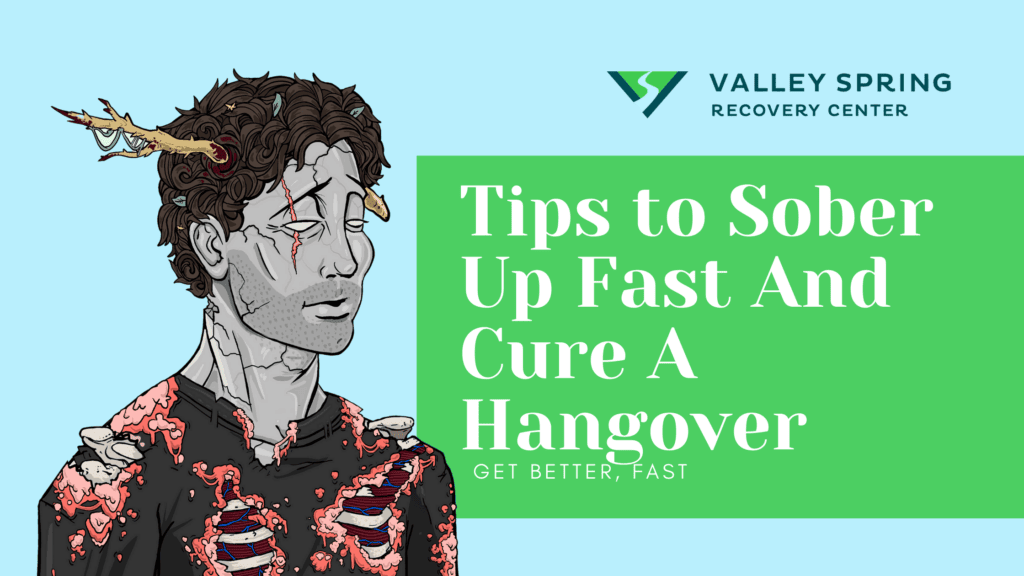Addiction recovery is more than a journey away from substance abuse; it is a profound path toward personal growth and self-discovery. These essential components serve as the building blocks for a transformative healing experience.
Personal growth refers to the process of enhancing one’s self-awareness, developing talents, and building human capital. It’s about recognizing personal potential, fulfilling aspirations, and creating a life that resonates with one’s authentic self.
Self-discovery is an introspective process involving the exploration and understanding of one’s true self, values, beliefs, and purpose. It’s about peeling back the layers of external influence and addiction to reveal a core identity, sometimes hidden or suppressed.
Together, personal growth and self-discovery provide a solid foundation for recovery from addiction. By embracing these aspects, individuals not only navigate away from addictive behaviors but also embark on a path that fosters self-respect, resilience, and a renewed sense of purpose. This process facilitates the development of new skills and insights, nurturing a more profound connection with oneself and others. It offers a chance to reinvent and rejuvenate, culminating in the transformation that is “Embracing a New You.”
Through this journey, those in recovery can begin to rebuild their lives, not by merely returning to who they were before addiction but by moving forward into a richer, more meaningful existence, guided by a clear understanding of who they are and what they want from life.
Key Takeaway:
- Personal growth and self-discovery play a crucial role in addiction recovery. By discovering and cultivating a new self, individuals can overcome their addictive behaviors embrace a fulfilling life in recovery, and reduce the chances of relapse.
- Self-care is an essential aspect of personal growth and recovery. Individuals should prioritize their physical, emotional, and spiritual well-being by engaging in healthy habits, such as exercise, meditation, and therapy.
- To successfully embrace a new you and become the best version of yourself, it is important to overcome the fear of change, maintain a positive outlook, and harness the power of positive self-talk. Setting achievable goals and building a support system can also aid in this process.
An In-Depth Look at Addiction and Recovery
In order to understand addiction and its impact, it is important to first define what addiction actually means. According to the National Institute Of Drug Abuse, addiction is a chronic disease characterized by drug seeking and use that is compulsive, or difficult to control, despite harmful consequences. The initial decision to take drugs is voluntary for most people, but repeated drug use can lead to brain changes that challenge an addicted person’s self-control and interfere with their ability to resist intense urges to take drugs. These brain changes can be persistent, which is why drug addiction is considered a “relapsing” disease—people in recovery from drug use disorders are at increased risk for returning to drug use even after years of not taking the drug.
It’s common for a person to relapse, but relapse doesn’t mean that treatment doesn’t work. As with other chronic health conditions, treatment should be ongoing and should be adjusted based on how the patient responds. Treatment plans need to be reviewed often and modified to fit the patient’s changing need
While addiction has many causes including genetics, environment and lifestyle choices, anyone can become addicted given the right circumstances. Addictions can be damaging and lead to negative impacts on a person’s life, however, it also presents an opportunity in recovery to redefine yourself and improve your quality of life. Many times individuals in recovery gain a better understanding of themselves and their impact on society which can cause a positive ripple effect.
Causes and Triggers of Addiction
Causes and Triggers of Addiction are complex, multifaceted issues that can vary from person to person. Addiction is a disease that involves compulsive drug or alcohol use despite harmful consequences. It can begin with social, environmental, or biological factors and have both physical and psychological aspects. Understanding the causes and triggers of addiction is essential to helping individuals recover and live a healthy life.

Many factors contribute to causing addiction. Genetics plays a significant role in determining whether someone is likely to develop an addiction. But, environmental factors such as family conflicts or peer pressure can also trigger addictive behavior. Substance abuse may start as an escape mechanism when someone is facing emotional pain, trauma, or stress in their daily lives.
Social isolation, physical health problems/maladies, mental disorders (depression/anxiety), or genetic predisposition also act as possible triggers for an unhealthy pattern of substance abuse leading towards addiction. These underlying reasons must be identified and dealt with hand-in-hand with addiction treatment.
Addiction often begins harmlessly enough before spiraling into full-blown dependency headaches. For instance, using prescribed medication for chronic pain relief might over time lead to intake increase – which further leads an individual in this cycle of chasing relief from discomfort/harmful emotions through substance abuse.
Understanding Different Addictions and Their Effects
Understanding Different Addictions and Their Effects starts with having a basic knowledge of what addiction really is. Addiction is a complex condition that affects the brain, causing an individual to compulsively seek and use drugs, alcohol, or indulge in certain behaviors despite the consequences. It often begins with voluntary actions and then becomes impossible for the person to stop without seeking help.
Addiction is not limited to substance abuse alone; behavioral addictions such as gambling, sex addiction, internet/social media addiction can be just as damaging. Once someone is addicted to something, it becomes difficult for them not only physically but also emotionally and mentally. There are several reasons behind the causes of addictions:
- genetics
- environment
- past trauma or abuse history
- mental health issues such as Depression or Anxiety disorders.
Understanding Different Addictions and Their Effects requires deep insight into various kinds of addictions in our society. For example – opioid addiction results from using powerful prescription painkillers that can be highly addictive; nicotine addiction stems from the use of tobacco products which contain high levels of addictive substances like Nicotine; alcoholism wherein excessive consumption can lead to chronic health problems such as liver disease, cardiovascular disease and stroke.
Coping Strategies for Addiction Recovery
As someone who has been through addiction recovery, I know firsthand how challenging the process can be. Coping with addiction requires a multifaceted approach that involves developing a range of coping strategies that help you manage stress, cravings, and triggers. In this section, we’ll explore some of the most essential steps for coping with addiction, as well as the power of coping skills in recovery. We’ll also delve into some of the most common challenges faced during addiction recovery and how to overcome them. With the right coping strategies in place, you can take control of your addiction and embrace a new you.
But freedom from addiction is possible. New approaches are providing motivation, easing withdrawal, and renewing purpose.
Harvard Health Publishing
Essential Steps for Coping with Addiction
Text: Essential Steps for Coping with Addiction involve a series of actions and techniques that can help individuals recover from addiction. The journey toward recovery is not easy, and it requires courage, determination, and patience to cope with addiction. It is crucial for individuals to take proactive measures to overcome addiction and regain control of their lives.
The following 6-Step Guide provides insights into Essential Steps for Coping with Addiction:
- Acceptance: Accepting the presence of addiction is the first step toward recovery.
- Seek Help: Reach out to a trusted friend or family member, seek assistance from healthcare professionals or enroll in support groups.
- Identify triggers: Identify situations, people or environments that can trigger your addiction.
- Create coping strategies: Incorporate new habits that promote positive self-care like mindfulness exercises, daily affirmations, and exercise.
- Create a support system: Build a supportive network of friends, family members or a support group.
- Track progress: Review your progress regularly, take note of any improvement in mental clarity, body health, and relationships.
Studies show the importance of unlearning social norms around drug and alcohol use. This involves reconditioning beliefs and developing new coping mechanisms outside of this social construct. These Essential Steps have been tested over time by Professional organizations such as ‘Alcoholics Anonymous’.
Executing coping skills education program led to reducecraving beliefs and improve knowledge towards signs of relapse.
NCBI
Many people suffering from addiction are afraid to face their problems because they feel alone on this journey. It’s important to know addiction takes many forms, all equally painful, effective therapy should be used in combination with other disciplines. However, this journey doesn’t have to be done alone.
You don’t need superpowers nor do you need to conform “One Day at A Time”, each day choose what works best for you, because you possess your unique strengths. Not everyone was born ready-made so seeking daily progress guarantees success. Life has dealt us tough cards but the power of your coping skills in recovery is within your reach.
The Power of Coping Skills in Recovery
The Power of Coping Skills in Recovery cannot be underemphasized. It is a crucial aspect that aids individuals to overcome addiction and attain a better quality of life. Coping skills provide tools to manage the cravings, triggers, and negative emotions that often accompany recovery. These skills help individuals stay sober, rebuild their lives, and reach their full potential.
Firstly, coping skills empower individuals to deal with the underlying issues that led them to seek solace in drugs or alcohol. By learning healthy ways of managing stress and negative emotions, they can avoid relapse triggers and stay on the path of recovery. Secondly, coping skills promote self-awareness and self-confidence, which are essential in rebuilding life after addiction. Through these skills, people learn how to communicate effectively, build healthy relationships, develop hobbies/interests and gain employment or education.
Moreover, coping skills enable individuals to take accountability for their actions and make positive changes in their lives. By learning how to ask for help when needed, being honest with themselves about their feelings towards addiction and building a support network around them they can achieve success in all areas of life.
One powerful strategy is mindfulness meditation – this helps concentrate on the present moment with acceptance and without any judgment of thoughts or emotions arising at any point in time. Another strategy worth noting is journaling activities – like writing down feelings before the start of each day so one can prepare themselves mentally for challenges ahead.
When practicing coping strategies like these two mentioned above it’s important not to give up if something doesn’t feel right at first because often these strategies take time before becoming second nature!
“For those seeking an edge in overcoming obstacles during addiction recovery; Challenges Faced During Addiction Recovery offers some practical insights.”
Challenges Faced During Addiction Recovery
Challenges Faced During Addiction Recovery are no less daunting than the ones that caused the addiction. The journey of recovery is not only about withdrawing from addictive substances or behaviors but also involves confronting and healing underlying issues, which makes it quite challenging.
During addiction recovery, several challenges need to be encountered, such as:
- cravings,
- withdrawal symptoms,
- depression or anxiety,
- isolation,
- loss of identity and relationships,
- self-doubt or guilty conscience,
- lack of support or accountability.
The list seems never-ending, and each person’s challenges may differ depending on various factors such as age, gender, mental health condition, substance used, and duration of addiction.
Recovery from addiction is an individual journey that requires introspection beyond physical remedies. A successful outcome demands a comprehensive approach towards addressing both psychological and physiological health aspects. However, often individuals struggle to cope with the changes in their lifestyle during the early days of recovery.
If you’re someone who’s currently undergoing addiction recovery treatment or contemplating beginning one in the near future – always remember that you’re not alone in this fight. Seek professional help if required; surround yourself with positive people who can uplift your spirits when things seem too challenging to handle alone. You don’t want to miss out on living a healthy life free from addiction because of temporary setbacks.

Personal Growth and Self-Discovery for Early Sobriety
When it comes to addiction recovery, growth and self-discovery play significant roles in building a meaningful and sustainable new life. The personal growth journey goes beyond merely abstaining from substance abuse, and embraces self-awareness, acceptance, and the cultivation of a new identity. In this section, we will explore the benefits of self-discovery for addiction recovery, and how it can lead to a stronger and healthier sense of self. We will also discuss strategies to discover and cultivate the new self, and the importance of self-care in sustaining a life of personal growth.
The Benefits of Self-Discovery in Addiction Recovery
Self-discovery is a powerful tool for addiction recovery, offering numerous benefits to those who embrace it. By exploring and understanding their personal values, beliefs, and desires, individuals can identify the underlying causes of their addiction and develop strategies to overcome their struggles.
One of the main benefits of self-discovery in addiction recovery is the ability to identify triggers and develop coping mechanisms. Recognizing situations or emotions that lead to addiction is one of the key tips for remaining sober. For individuals in sobriety, identifying emotional and situational triggers gives context enough context to avoid relapse triggers altogether or deal with them in a healthy way. This often involves developing new skills or hobbies, such as meditation or exercise, that provide a sense of fulfillment and purpose.
Self-discovery also allows individuals to recognize negative patterns of behavior and replace them with positive ones. By becoming more self-aware, individuals are better equipped to make conscious decisions that align with their values and goals. This can lead to increased confidence and self-esteem, as well as improved relationships with others.
How to Discover and Cultivate Your New Self
Do you feel like you’re stuck in a rut and want to reinvent yourself? Wondering how to discover and cultivate your new self? Follow this 3-step guide to turn over a new leaf.
- Step 1: Take time for self-reflection. Make a list of your strengths, weaknesses, values, interests, and goals. Analyze them and identify areas where you want to grow or change.
- Step 2: Step out of your comfort zone. Try new things that challenge you, whether it’s learning a skill, volunteering for a cause, traveling to a foreign country, or taking up a hobby. Be open-minded and courageous enough to embrace discomfort as part of the growth process.
- Step 3: Surround yourself with positive influences. Seek out people who inspire you, support your aspirations, and celebrate your progress. Join groups or communities that share your values or interests. Avoid toxic relationships or environments that drain your energy or detract from your goals.
Cultivating your new self is an ongoing process that requires patience, persistence, and self-compassion. Don’t expect immediate results or perfection but enjoy the journey of self-discovery and personal growth.
Ben Fisher
All author postsShare This Post





